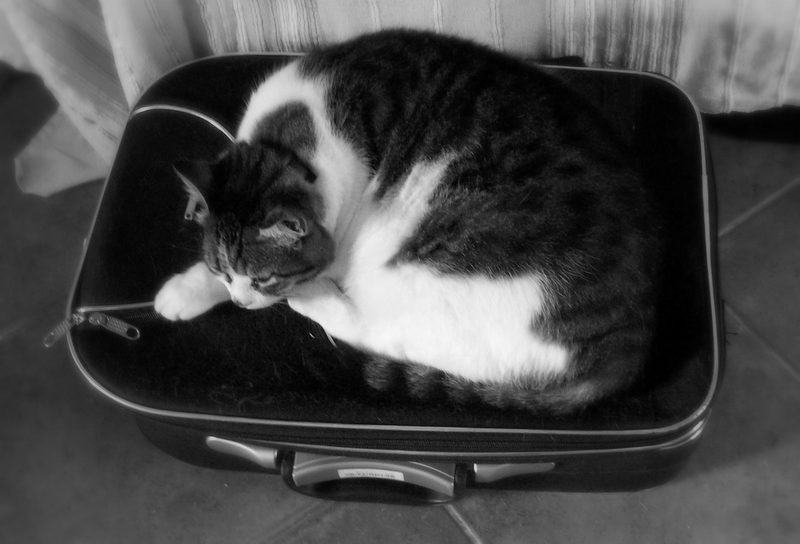Transitive And Intransitive Verbs – A Quiz Posted by Serena on Jul 14, 2017 in Grammar
A short while ago we published an article about Transitive And Intransitive Verbs. Here’s a quiz in which you have to choose which auxiliary verb to use, essere or avere, when transposing a sentence from the present tense into the present perfect (passato prossimo).
How to complete the quiz:
Below, you’ll find a series of sentences in the present tense followed by the same sentence in the present perfect containing a gap into which you need to insert the correct auxiliary verb followed by the past participle of the main verb. Here are a couple of examples:
presente: Paolo lava la macchina (Paolo is washing the car)
passato prossimo: Paolo ha lavato la macchina (Paolo has washed the car)
presente: Giorgia va al lavoro in macchina (Giorgia goes to work by car)
passato prossimo: Giorgia è andata al lavoro in macchina (Giorgia went to work by car)
Your turn:
presente: la mamma fa gli spaghetti alla carbonara (mother is making spaghetti carbonara)
passato prossimo: la mamma __ _____ gli spaghetti alla carbonara (mother has made spaghetti carbonara)
presente: Giovanni viene a trovare suo padre tutte le domeniche (Giovanni comes to visit his father every Sunday)
passato prossimo: Giovanni __ _____ a trovare suo padre domenica scorsa (Giovanni came to visit his father last Sunday)
presente: siamo a casa tutta la settimana (we are at home all week)
passato prossimo: __ _____ a casa tutta la settimana (we were at home all week)
presente: Gianna viaggia molto per lavoro (Gianna travels a lot for work)
passato prossimo: Gianna __ _____ molto per lavoro (Gianna has travelled a lot for work)
presente: prendiamo l’ombrello perché piove (it’s raining, let’s get the umbrella)
passato prossimo: __ _____ l’ombrello perché pioveva (we got the umbrella because it was raining)
presente: Mimì si riposa sulla valigia di Serena (Mimì is resting on Serena’s suitcase)
passato prossimo: Mimì __ __ _____ sulla valigia di Serena (Mimì rested on Serena’s suitcase)
presente: d’estate camminiamo molto (in the summer we walk a lot)
passato prossimo: l’estate scorsa __ _____ molto (last summer we walked a lot)
presente: Gianni non viene perché non si sente bene (Gianni isn’t coming because he doesn’t feel well)
passato prossimo: Gianni non __ _____ perché non __ __ _____ bene (Gianni didn’t come because he didn’t feel well)
presente: perché non rimanete a cena da noi? (why don’t you stay for dinner with us?)
passato prossimo: perché non ___ _____ a cena da noi? (why didn’t you stay for dinner with us?)
presente: rimandiamo l’appuntamento, non ce la facciamo! (let’s postpone the appointment, we can’t make it!)
passato prossimo: _____ _____ l’appuntamento, non ___ _____ _____! (we postponed the appointment, we couldn’t make it!)
We’ll publish the answers at the beginning of next week. Buon fine settimana!

Build vocabulary, practice pronunciation, and more with Transparent Language Online. Available anytime, anywhere, on any device.





Comments:
paolo minotto:
1. ha fatto
2. è venuto
3. siamo stati
4. ha viaggiato
5. abbiamo preso
6. si è riposata
7. abbiamo camminato
8. è venuto, si è sentito
9. siete rimasti
10. abbiamo rimandato, ce l’abbiamo fatto
Phil:
1. ha fatto
2. è venuto
3. siamo stati
4. ha viaggiato
5. abbiamo preso
6. si è riposata
7. abbiamo camminato
8. è venuto/si è sentito
9. siete rimasti
10. abbiamo rimandato/ce l’abbiamo fatto
June:
1. ha fatto
2. e’ venuto
3. siamo stati
4. ha viaggiato
5. abbiamo preso
6. si e’ riposata
7. abbiamo camminato
8. e’ venuto/si e’ sentito
9. siete rimasti
10. abbiamo rimandato/non ce l’abbiamo fatta